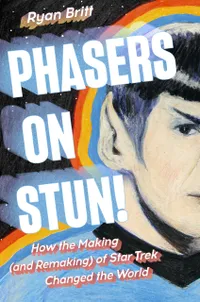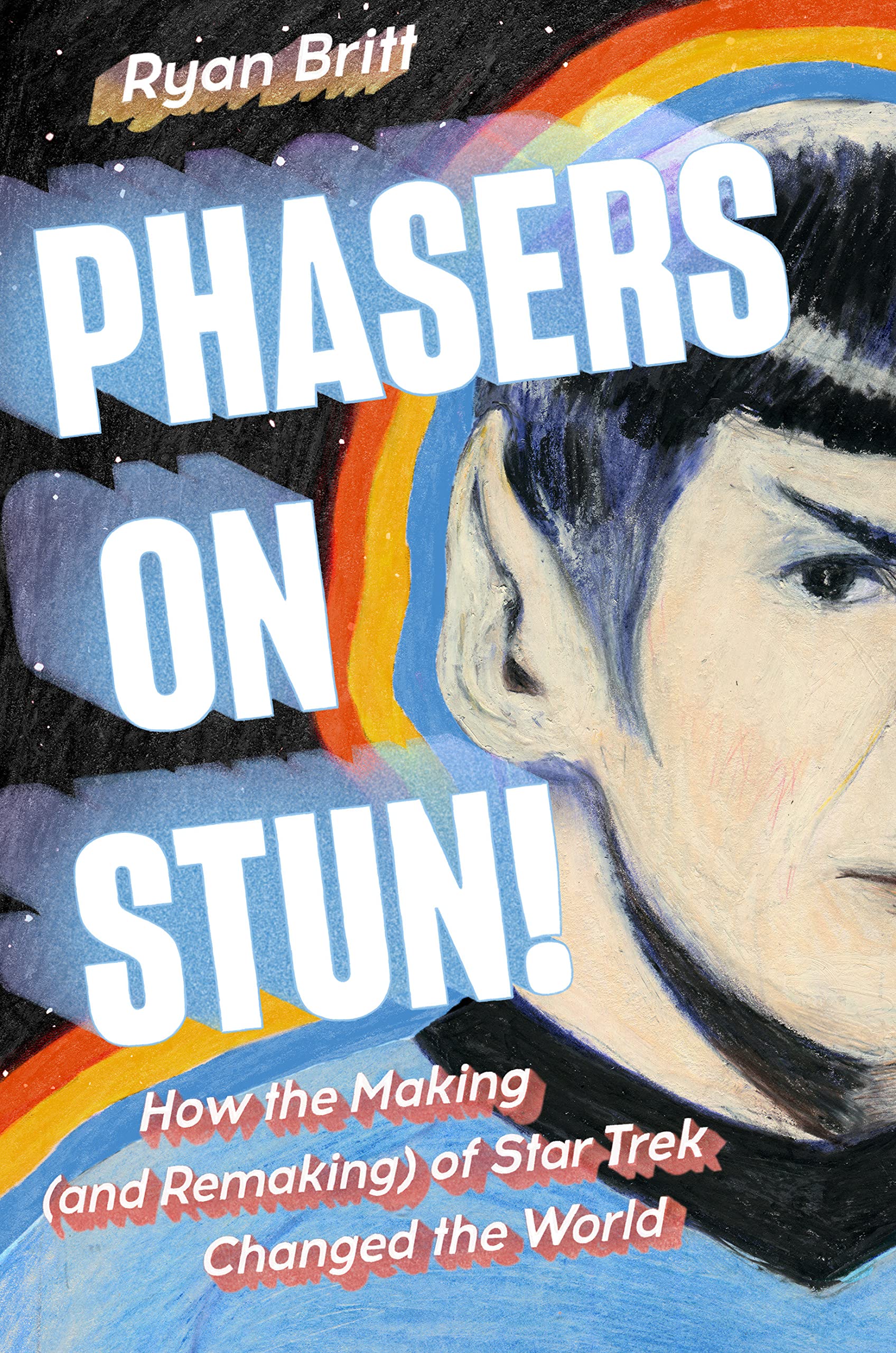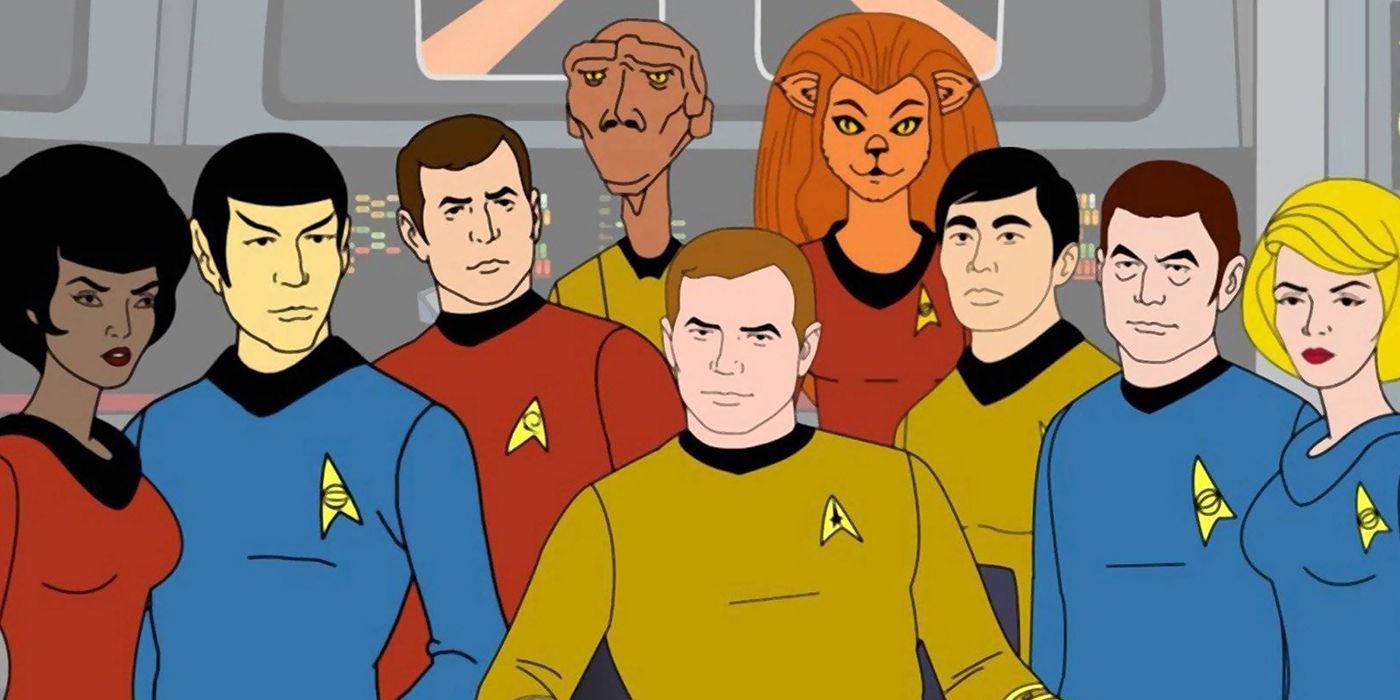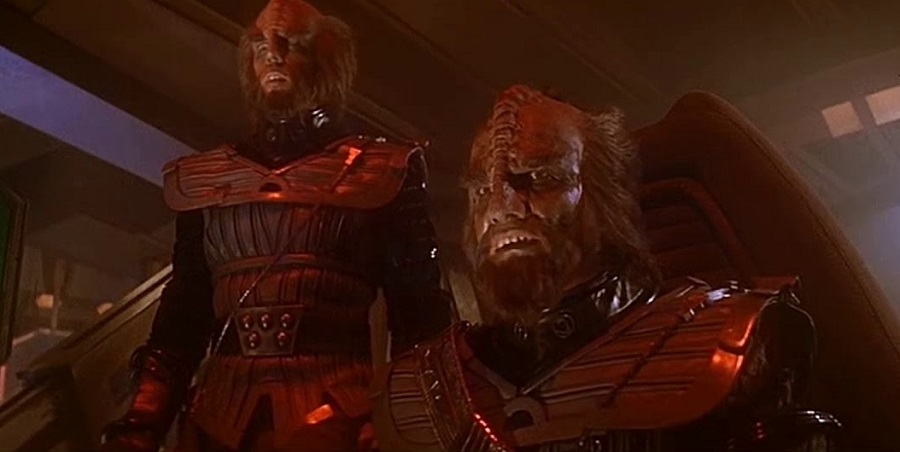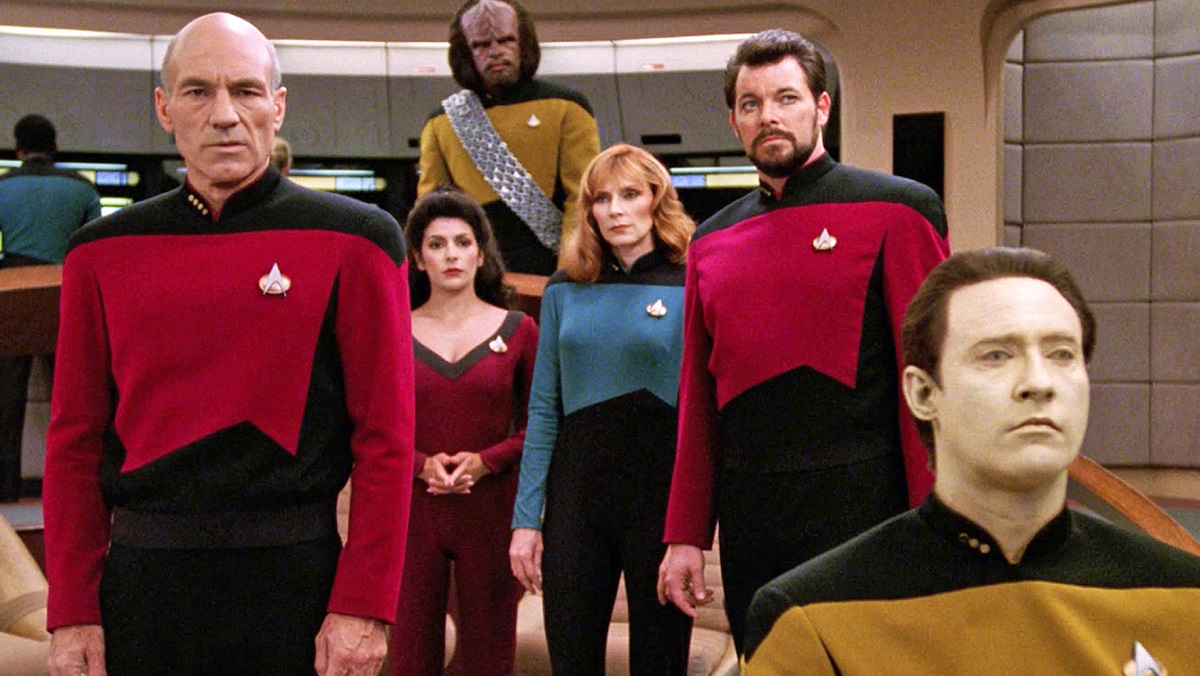Energize your 'Star Trek' wisdom with 'Phasers on Stun!' by Ryan Britt (exclusive)
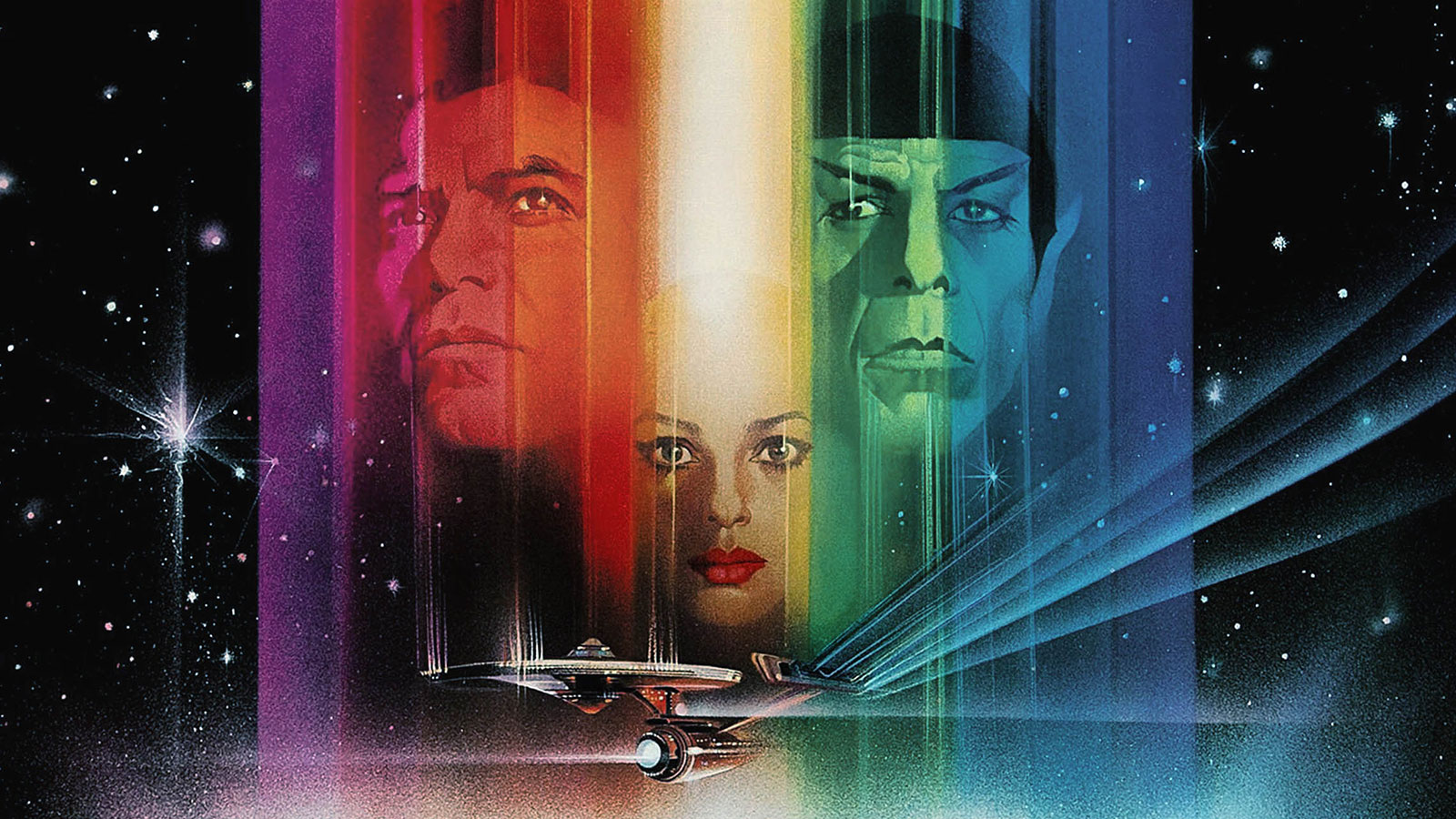
Steeped in the legends and lore of the vast "Star Trek" franchise, veteran journalist Ryan Britt has been enamored of the space opera sensation ever since dressing up as a pint-size Spock for Halloween as a third-grader.
Britt's new retrospective guide, "Phasers on Stun!: How the Making (and Remaking) of Star Trek Changed the World," (Plume, 2022) arrives May 31 and cuts a broad swath through the heart of the entire "Star Trek" universe to touch upon the myriad manifestations of creator Gene Roddenberry's original "Wagon Train to the Stars" and examine the mainstreaming of the genre.
The guide is written in a breezy, absorbing style, and Britt's love of the iconic sci-fi property shines through on every page, revealing insightful truths and little-known facts surrounding the making of all the "Star Trek" feature films, TV series and animated shows, from the original "Star Trek" series all the way to the upcoming "Star Trek: Discovery" spinoff "Star Trek: Strange New Worlds." You can check out our Star Trek streaming guide to see where to watch them all to be ready for Britt's book.
Related: 'Star Trek' movies, ranked worst to best
Phasers on Stun!: How the Making (and Remaking) of Star Trek Changed the World: $28 at Amazon
Author Ryan Britt takes a down-to-earth look at the out-of-this-world journey of Star Trek available for pre-order for a May 31, 2022 release.
"Phasers on Stun!" traces the evolution of "Star Trek" from its formative small-screen years in the late '60s to its role as a revealing mirror that reflects the social and political issues of 21st-century Earth. Intensely researched with pop culture nuggets gleaming from every page, Britt's entertaining tome has something for fans at every stage of "Star Trek" obsession.
The book's 400 pages showcase over 100 exclusive interviews with actors and writers across the "Star Trek" spectrum, including Walter Koenig, LeVar Burton, Dorothy Fontana, Brent Spiner, Ronald D. Moore, Jeri Ryan and a constellation of key creators whose dedication has illuminated the franchise for over five decades. "Phasers on Stun!" also visits with Michael Chabon (co-creator of "Star Trek: Picard") and director Nicholas Meyer ("Star Trek II: The Wrath of Khan").
Space.com spoke with Britt regarding this engaging valentine to "Star Trek," to learn how this overarching book originated and why it's a refreshing addition to the dozens of previously published "Star Trek" books that should enlighten Trekkies of all persuasions.
Breaking space news, the latest updates on rocket launches, skywatching events and more!
Space.com: What was the genesis of this project, and why did the world need another "Star Trek" retrospective?
Ryan Britt: I'm friends with a lot of the guys who've done many of the "Star Trek" books over the years. Larry Nemecek, Mark Altman and Ed Gross are good friends that I'd consider mentors of mine, and I consulted them, as well as Marc Cushman, on my book. There have been lots of nonfiction books about the history of "Star Trek," but I don't think something like "The Fifty-Year Mission" [Thomas Dunne Books, 2016], that became the essential bible for the unauthorized history of "Trek," is something you can read in a few days. It's two volumes. Marc Cushman's wonderful books, These Are the Voyages, are several volumes. I wanted to do something that would be one single book.
"Dreaming the Beatles" [Dey Street Books, 2017] is a fairly new book by Rob Sheffield that was my inspiration for doing "Phasers on Stun!" It's an accessible look at The Beatles that addressed a lot of things you've always heard but weren't sure what it was all about, and had a very specific chatty tone.
I wanted to do that kind of thing but for "Star Trek," since it was something I knew a lot about and had done a lot of reporting on since the new shows launched. I wanted to use quotes I used in previous articles and those I didn't use and put them all into a new context to create something that read like personal essays — something that was also for people who don't know anything about the making of "Star Trek," who aren't online and don't read tweets or follow the documentaries — to relay that information in a new way that was decidedly not the oral history format. First and foremost, I wanted this book to be for the less-visible Trekkies, the secret Trekkies.
Space.com: "Star Trek: The Motion Picture" is featured in a chapter of "Phasers on Stun!" Do you think the film has aged well over the years, or is it still "Star Trek: The Slow-Motion Picture?"
Britt: I think it has risen in estimation. Every couple years, there does seem to be the take that it was actually the most true to the original series, and I do think there are some truths to that argument. There are more behind-the-scenes books devoted to the making of "Star Trek: The Motion Picture," which is funny because it was the most — other than maybe "Star Trek V" — critically maligned film in the franchise. From a financial and sociological perspective, you cannot get away from the fact that, had "Star Trek: The Motion Picture" been the only "Star Trek" film, the franchise would probably have died, or at the very least, it would have not come to resemble what we think of "Star Trek" now.
And that's the larger point of the book: that "Star Trek" radically changes constantly, perhaps more than any other media entity or narrative sci-fi franchise. Its radical changes are what define it. "Star Trek" changes primary characters and the aesthetics in this gonzo way. For me, the difference between "The Motion Picture" and "The Wrath of Khan" is one of those biggest examples. Many people who are not hard-core science fiction fans or "Star Trek" fans, for them, the "Star Trek" franchise begins with "The Wrath of Khan." Fundamentally, every "Star Trek" film post-"Wrath of Khan" has almost always had some element of the film embedded in it, and I don't mean from a sci-fi perspective but from a structural perspective.
We wouldn't have the rest of "Star Trek" without "The Motion Picture," and [director] Robert Wise did an amazing job. But I don't think its influence demonstrates that "Star Trek" was willing to change. For as risky as the movie seems, "The Wrath of Khan" was actually much riskier. It didn't just get the people that went to "Star Trek" church every Sunday; it got the people that hadn't been to the "Star Trek" church in a while. And that was important.
Space.com: Of all the "Star Trek" series or movies, which one do you relate to most?
Britt: I would say "Star Trek: The Next Generation" and its spinoffs, "Deep Space Nine" and "Voyager" — all three of those shows. To a lesser degree, "Star Trek: Enterprise." The fact that "The Next Generation" even worked is shocking. That series was mine for sure. I wrote reviews of it in my diary when I was a kid and would think about it a lot. I told Patrick Stewart recently when I was interviewing him for "Picard" Season 2 that I got the audio of his one-man show of Charles Dickens' "A Christmas Carol" and listened to it as a 10-year-old. I was interested in Dickens because of him, and that was something that was very formative.
"The Next Generation" was a mood and a feeling that the original series didn't have — the camaraderie and the togetherness of those core characters, though the other casts have had it to varying degree. But "The Next Generation" had it first, and that was really revolutionary.
"Phasers on Stun!: How the Making (and Remaking) of Star Trek Changed the World" lands at bookstores and major online retailers on May 31.
Follow us on Twitter @Spacedotcom or on Facebook.

Jeff Spry is an award-winning screenwriter and veteran freelance journalist covering TV, movies, video games, books, and comics. His work has appeared at SYFY Wire, Inverse, Collider, Bleeding Cool and elsewhere. Jeff lives in beautiful Bend, Oregon amid the ponderosa pines, classic muscle cars, a crypt of collector horror comics, and two loyal English Setters.
